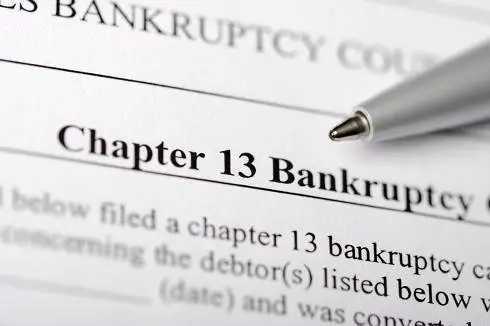Add New Debt While in Chapter 13

Get rid of your debt faster with debt relief
Choose your debt amount
Or speak to a debt consultant 844-731-0836
- Do not take on new new while in a Chapter 13 plan.
- Consult with your trustee before changing your financial situation.
We are currently in Chapter 13 but in the last 5 years we incurred more debt.
My wife and I are currently in Chapter 13 until March 09. We own a home and the payment is into the monthly payment to the court. Through the last 5 years however, we've accumulated over $22,000 in debt from various credit and store cards. We're in a catch-22. Make the card payments and we fall behind on utilities and the payment to the court. Make the court and utilities payments and we cant make the card payments. We have about $30,000 in equity in our house, but we cant touch that because of the Chapter 13, can we?
Consult with your bankruptcy attorney as soon as possible to advise him of this situation and determine what steps you can take to resolve the difficulties you are facing. You created a serious problem that may not be easy to fix; while in a Chapter 13 bankruptcy plan, you are prohibited from incurring new debt without receiving prior approval from the bankruptcy court or trustee. If you did not obtain court authorization before obtaining and using these credit cards, the bankruptcy judge would be well within his rights to dismiss your case. If the judge dismisses your case, you will not receive the discharge you have been working toward for the past almost 5 years, and all of that work and money could have been spent largely for naught.
As you can see, this misstep could create a very serious problem and could be detrimental to your future financial plans, so it is imperative that you contact your attorney to fully explain the situation and obtain his advice on how to best proceed. The federal bankruptcy code provides bankruptcy judges a fair amount of discretion in how they conduct their cases; while one judge may be strict and automatically throw out a case if a debtor violates any court order, another judgment may be much more lenient and allow potential violations to go unpunished. Hopefully, your attorney has enough experience with the judge assigned to your case to know what action the judge is likely to take if he finds out that you have incurred debt without court approval. Based on his experience, he may advise you to do whatever necessary to continue paying both your bankruptcy case and your new debts in hope that the indiscretion does not come to the court’s or trustee’s attention. On the other hand, he may advise you to notify the court of the debt now rather than risking the court uncovering the debt on its own and imposing a harsher penalty. The bottom line is that you need to consult with you attorney to try to find a way to mitigate the potential harm caused by your incurring this debt.
If the bankruptcy judge does find out about the newly incurred debts and dismisses your case as a result, you may be left owing any balances remaining on the debts which you had included in your Chapter 13 filing. Because of new time limits placed on filing a new bankruptcy petition, you may not be eligible to re-file for at least several months, if not longer, depending on the chapter under which you want to file (Chapter 7 or Chapter 13). Again, discuss this with your attorney so that you can be prepared in case the court does throw out your current case. To learn more about bankruptcy, visit the Bills.com bankruptcy resources page.
Assuming the judge allows you to continue your current Chapter 13 plan and grants you a discharge in March, 2009, you will still have the $22,000 in newly acquired debt to resolve and will be severely limited in your ability to receive another bankruptcy discharge for 6 years, if not longer. Therefore, you may need to consider alternative options to address this debt, such as credit counseling or debt negotiation programs. If you are interested in reading more about the various non-bankruptcy debt relief options available to consumers struggling with their finances, I encourage you to visit the Bills.com Debt Help page.
Once again, consult with your attorney as soon as possible regarding the potential consequences of this new debt you incurred and what steps you can take to mitigate the potential damage. I wish you the best of luck in resolving this situation, and hope that the information I have provided helps you Find. Learn. Save.
Best,
Bill
VIDEO: Bankruptcy - What is Bankruptcy?
Debt statistics
Mortgages, credit cards, student loans, personal loans, and auto loans are common types of debts. According to the NY Federal Reserve total household debt as of Q4 2023 was $17.503 trillion. Housing debt totaled $12.612 trillion and non-housing debt was $4.891 trillion.
According to data gathered by Urban.org from a sample of credit reports, about 26% of people in the US have some kind of debt in collections. The median debt in collections is $1,739. Student loans and auto loans are common types of debt. Of people holding student debt, approximately 8% had student loans in collections. The national Auto/Retail debt delinquency rate was 4%.
Each state has its rate of delinquency and share of debts in collections. For example, in North Dakota credit card delinquency rate was 3%, and the median credit card debt was $474.
While many households can comfortably pay off their debt, it is clear that many people are struggling with debt. Make sure that you analyze your situation and find the best debt payoff solutions to match your situation.